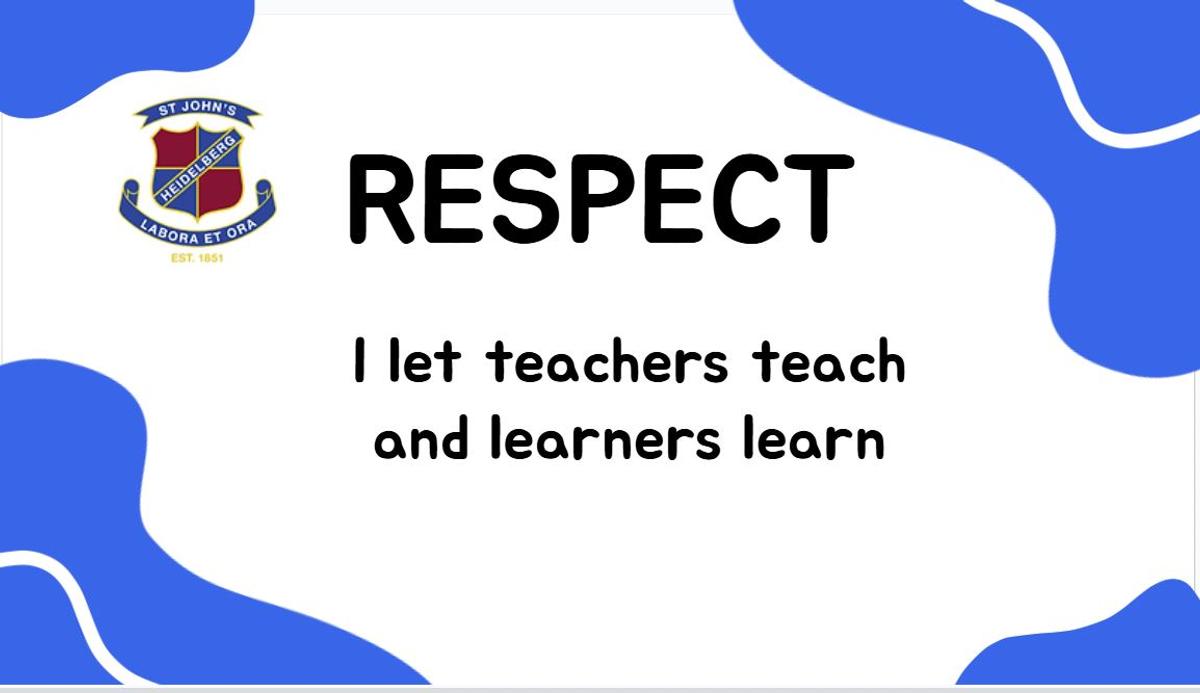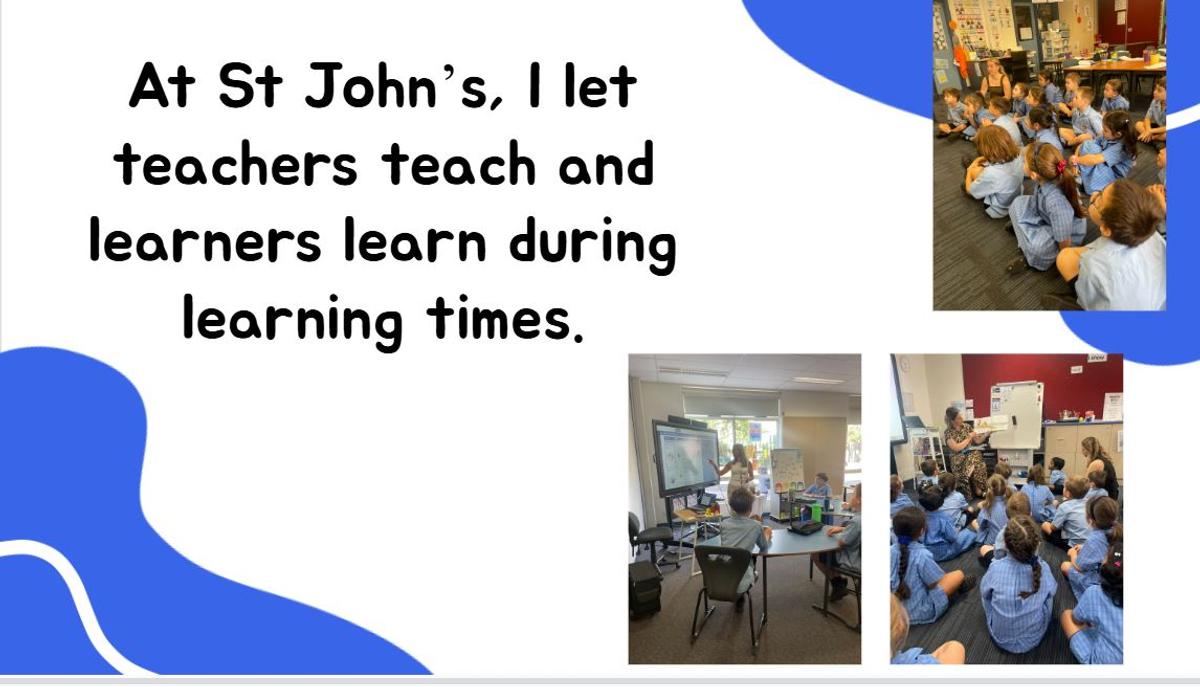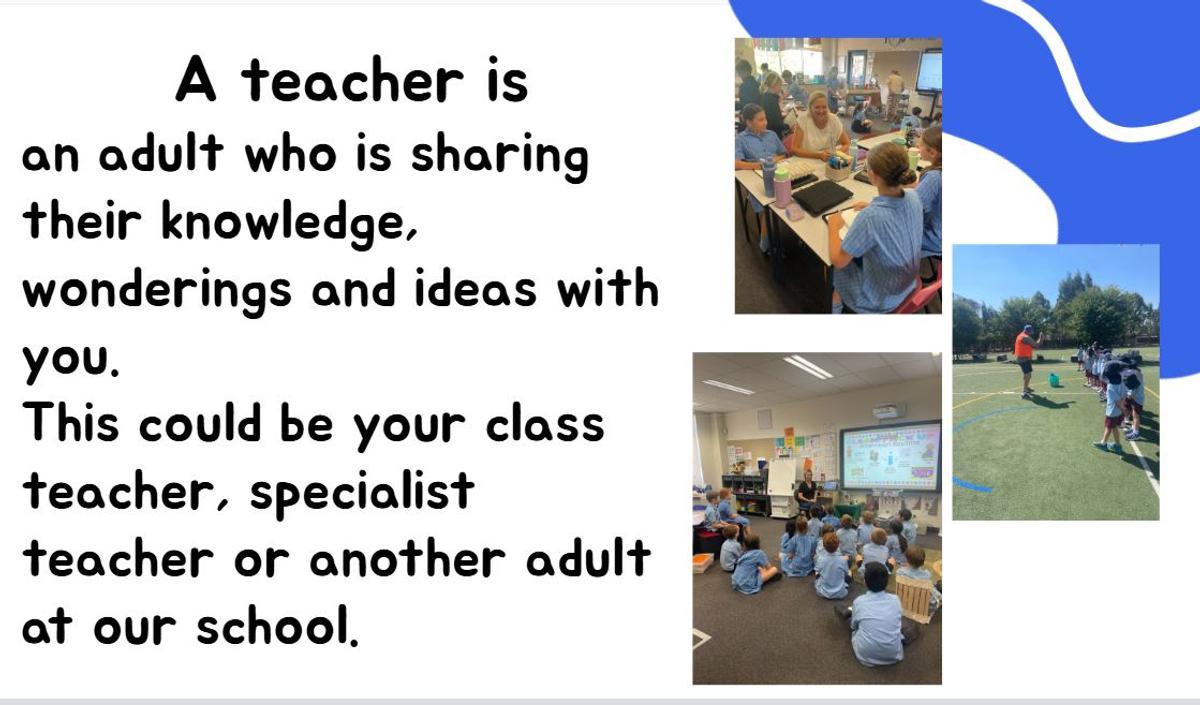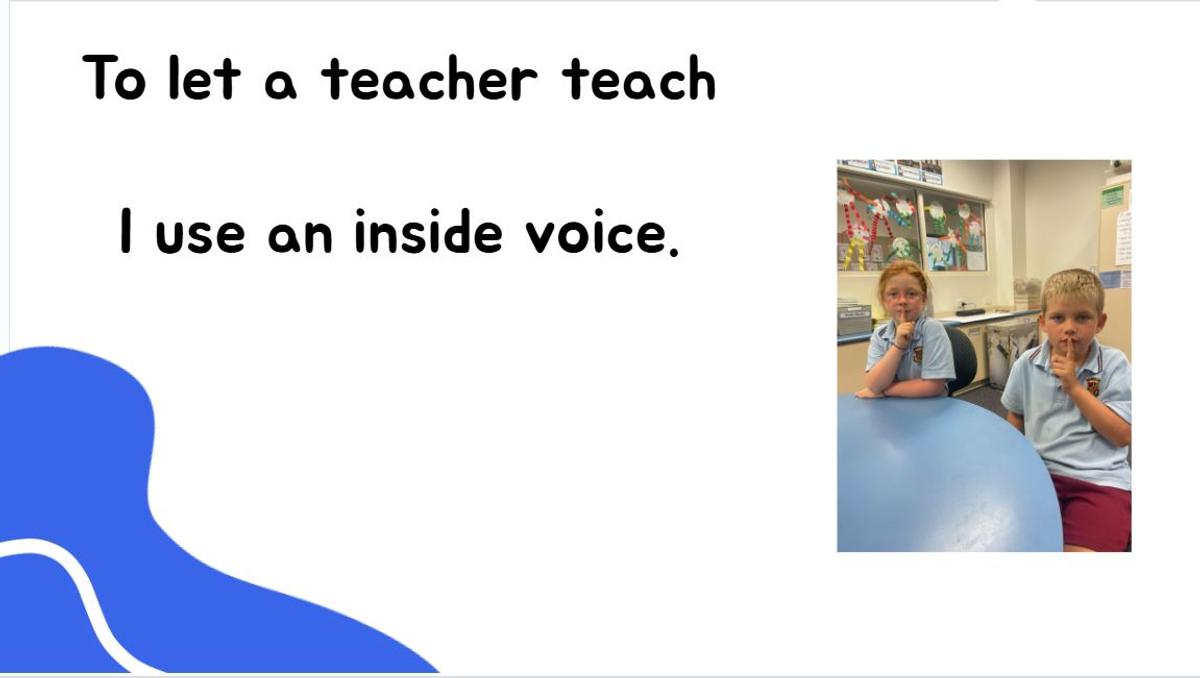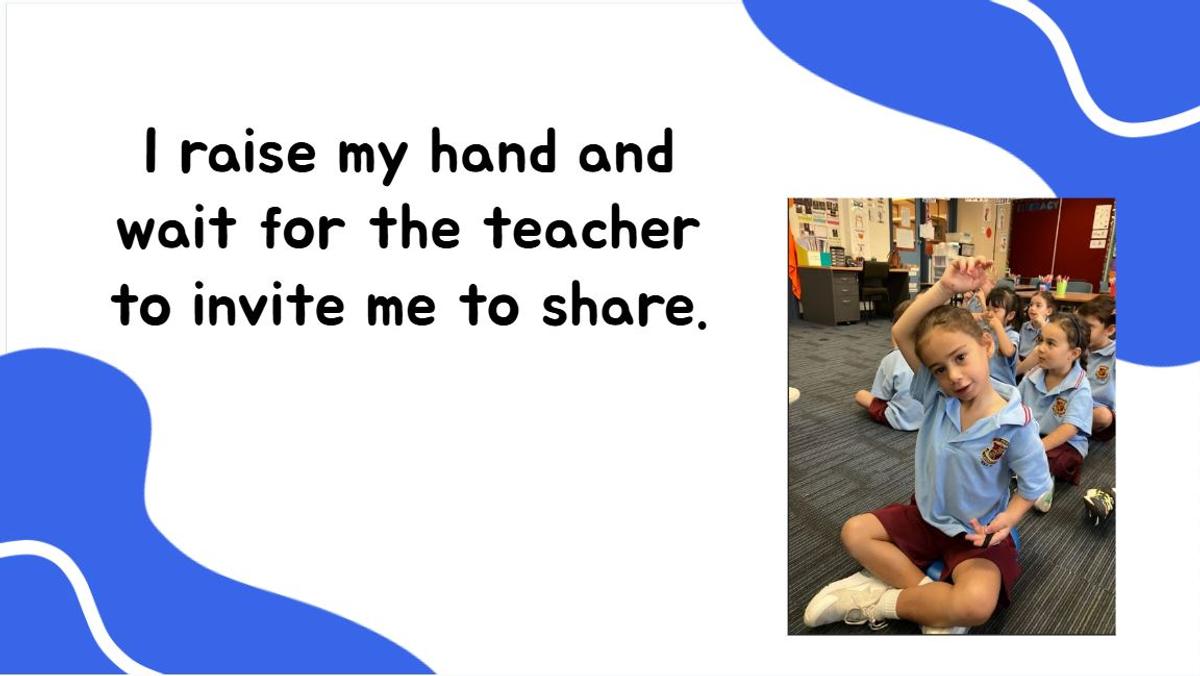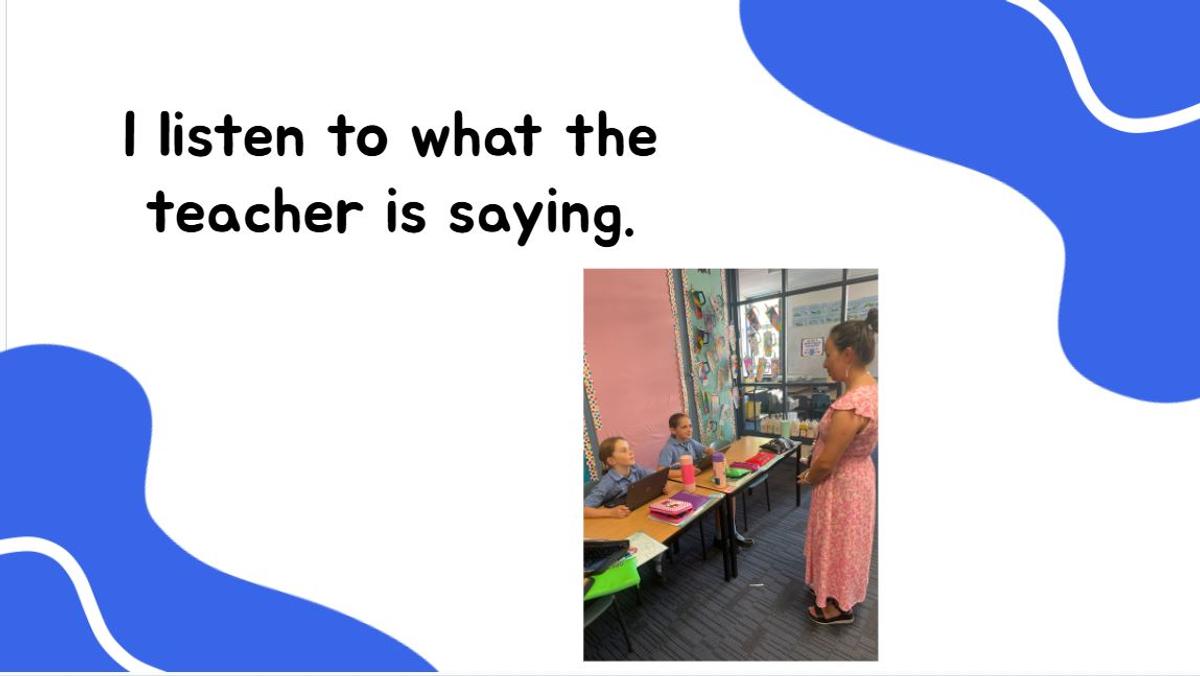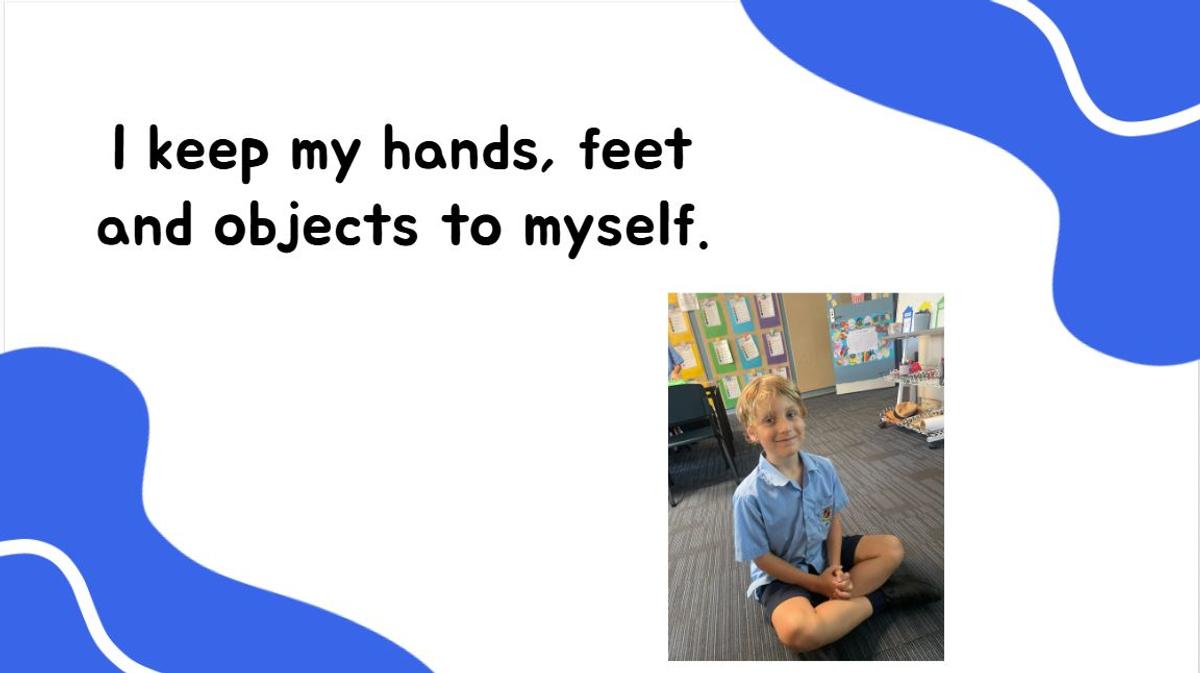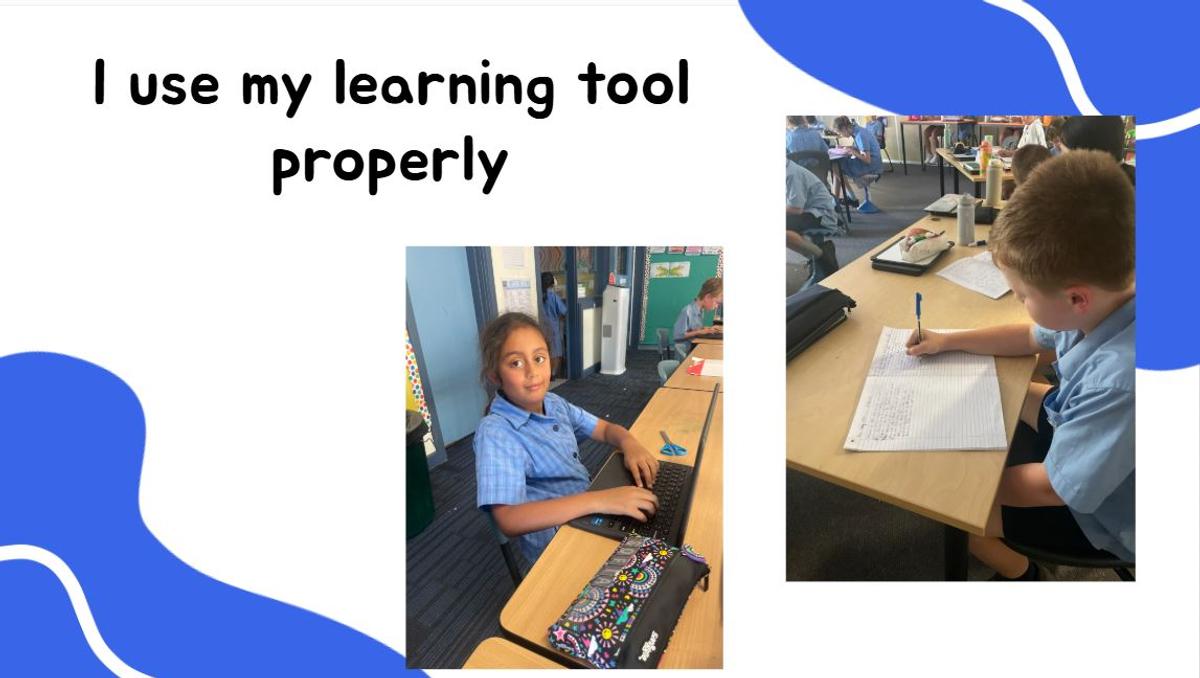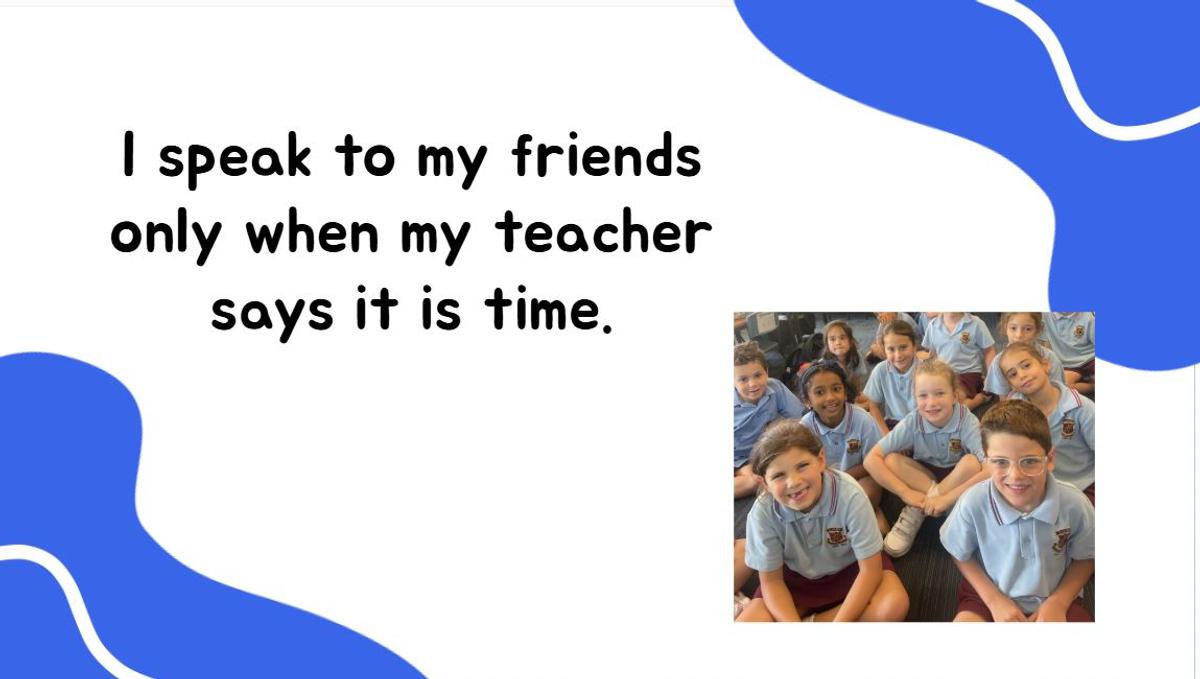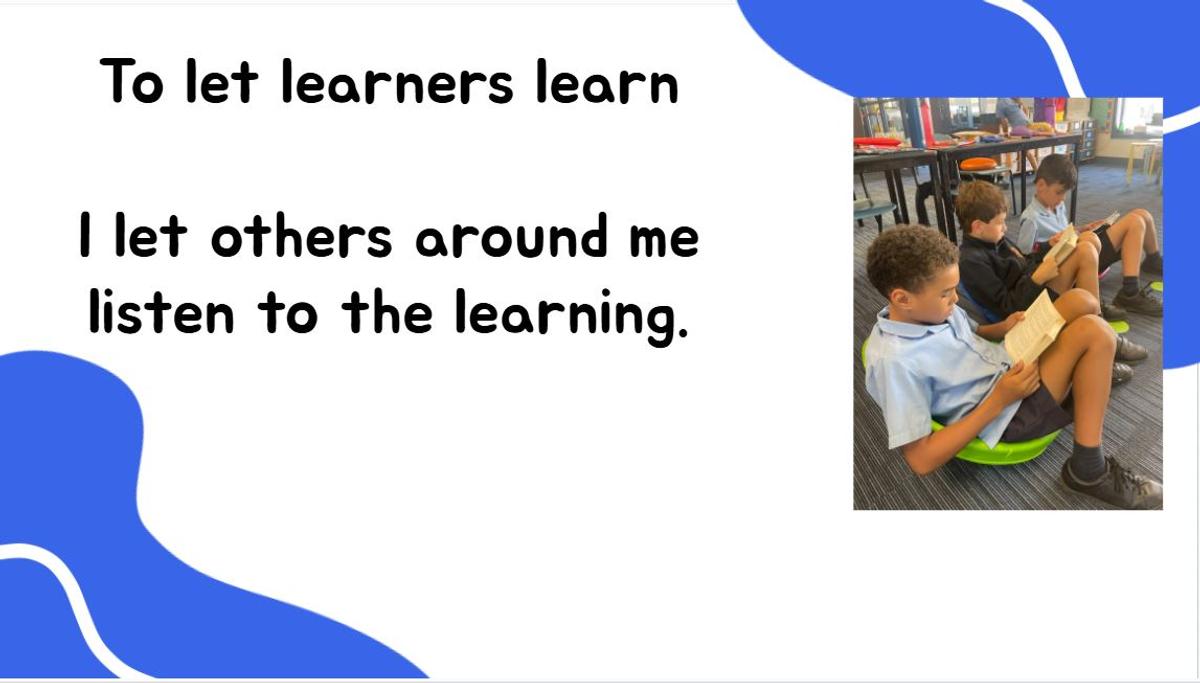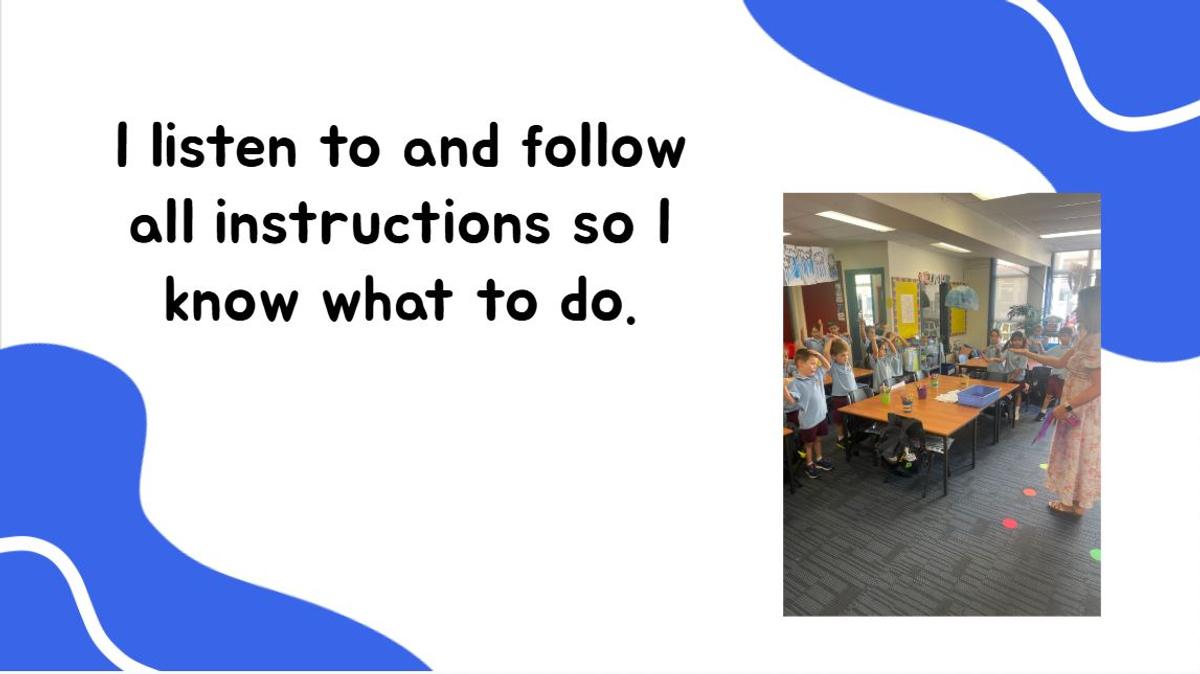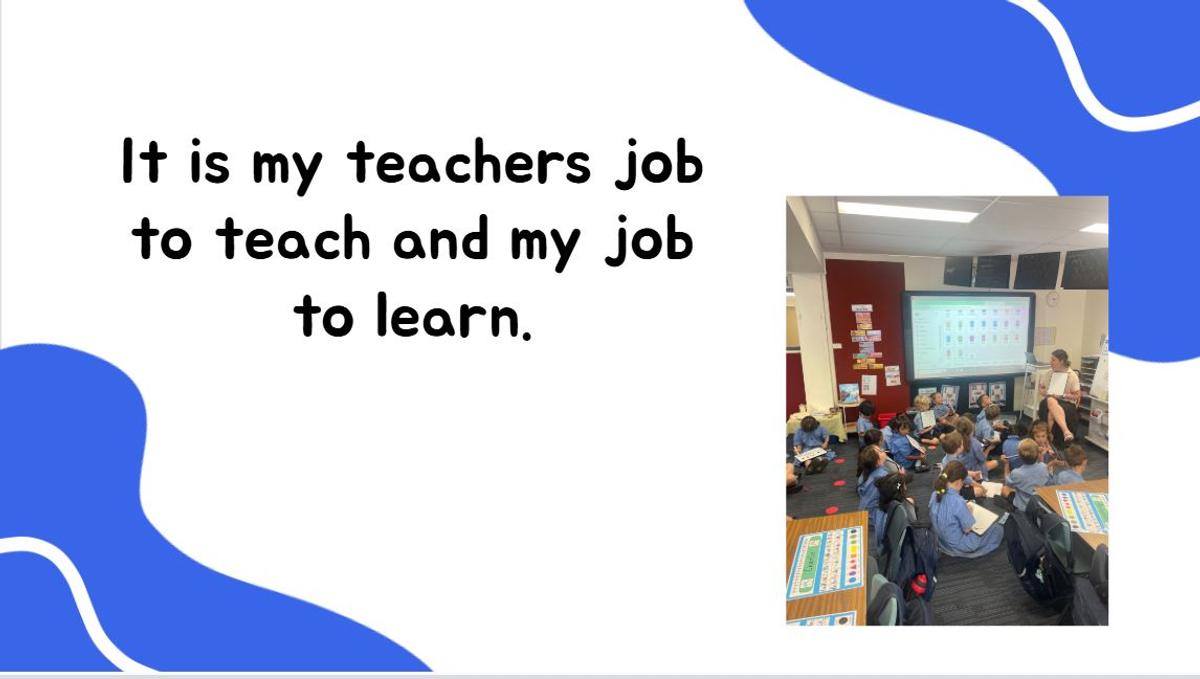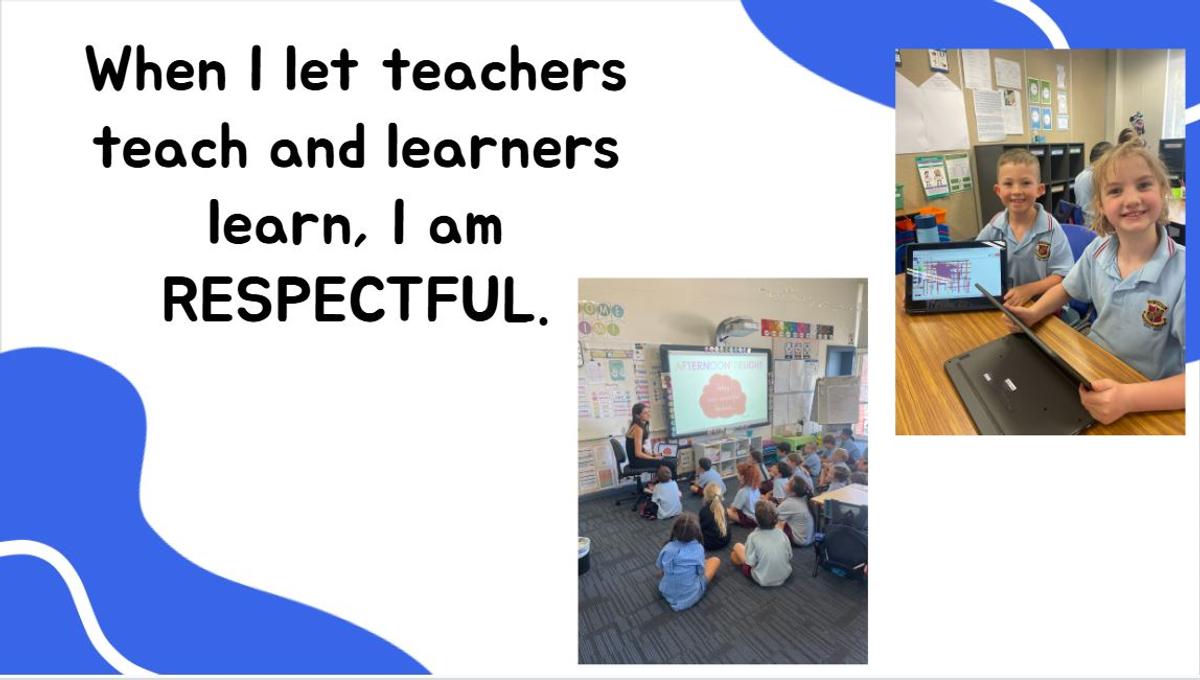Wellbeing News
Brooke Davis, Wellbeing Leader

Wellbeing News
Brooke Davis, Wellbeing Leader
Last week St John's celebrated Reconciliation Week, a time for all Australians to learn about our shared histories, cultures, and achievements, and to explore how each of us can contribute to achieving reconciliation in Australia.
These dates commemorate two significant milestones in the reconciliation journey – the successful 1967 referendum, and the High Court Mabo decision respectively.
Reconciliation must live in the hearts, minds and actions of all Australians as we move forward, creating a nation strengthened by respectful relationships between the wider Australian community, and Aboriginal and Torres Strait Islander peoples.
We all have a role to play when it comes to reconciliation, and in playing our part we collectively build relationships and communities that value Aboriginal and Torres Strait Islander peoples, histories, cultures, and futures.
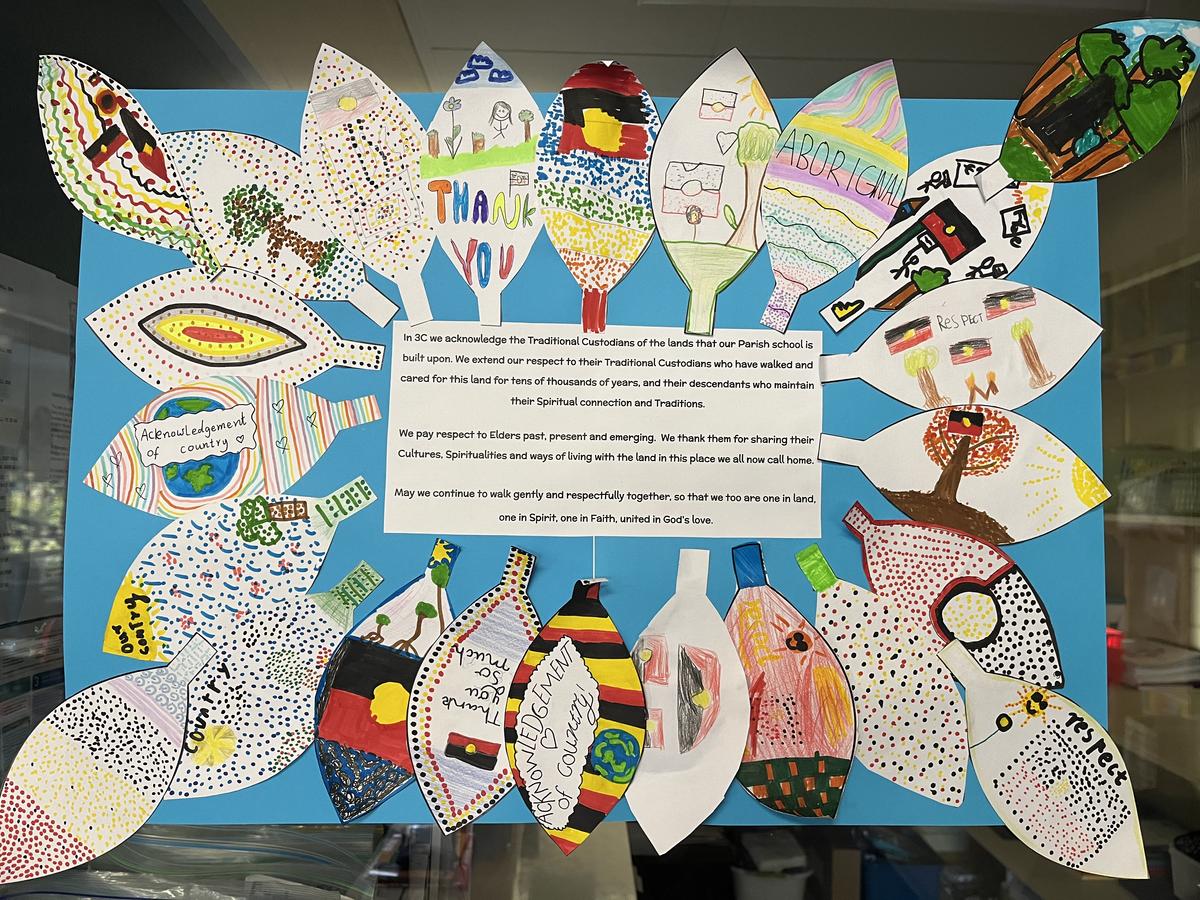
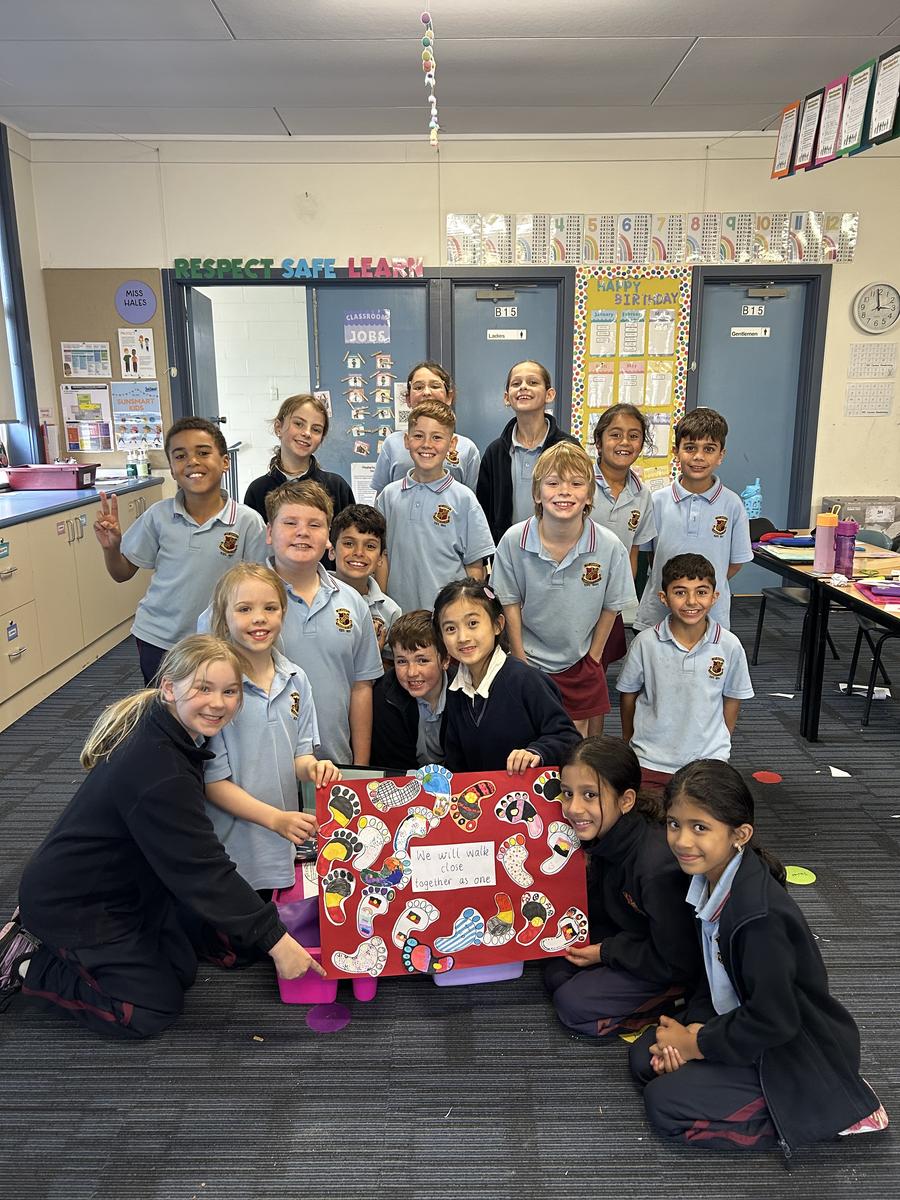
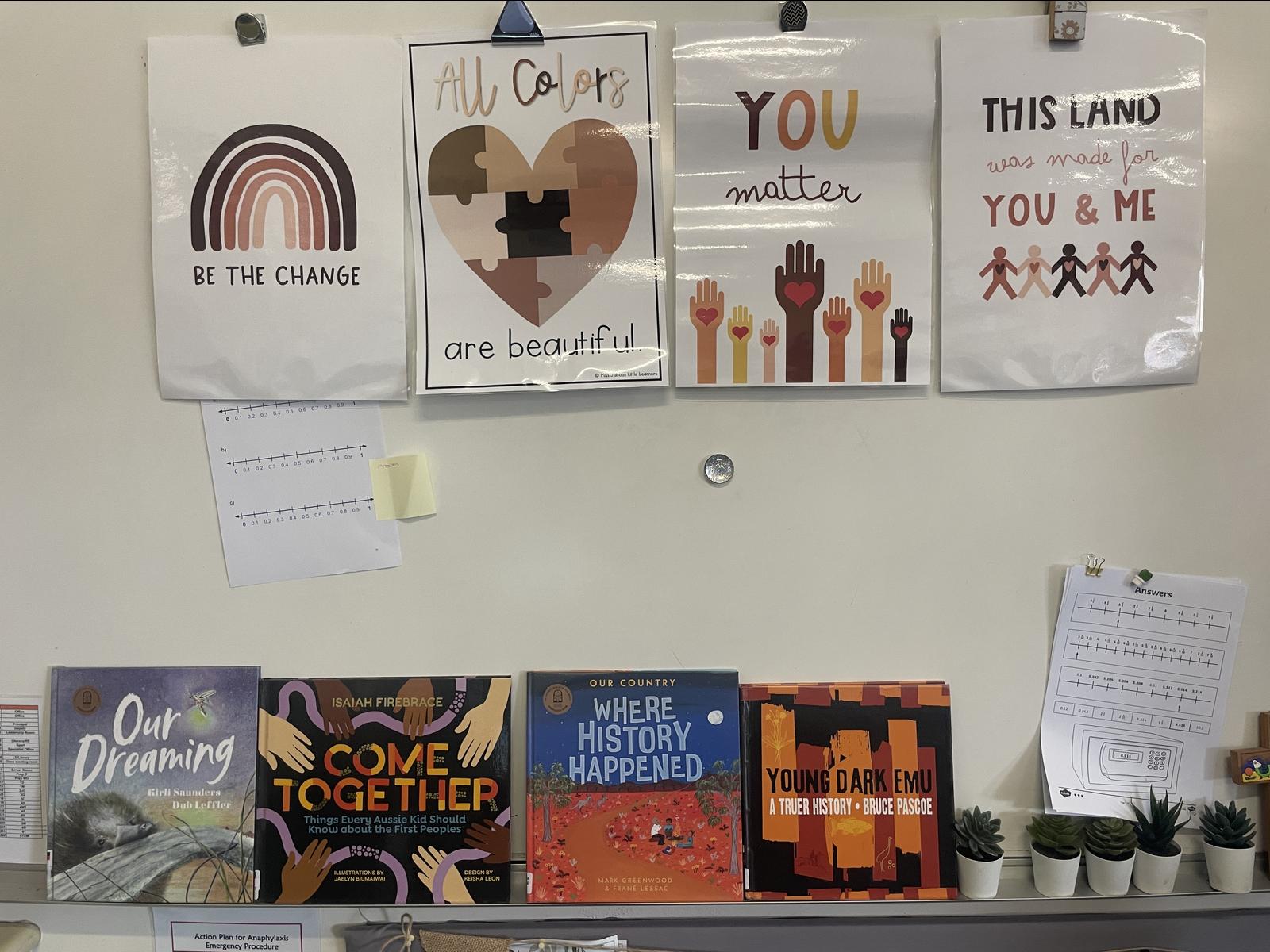
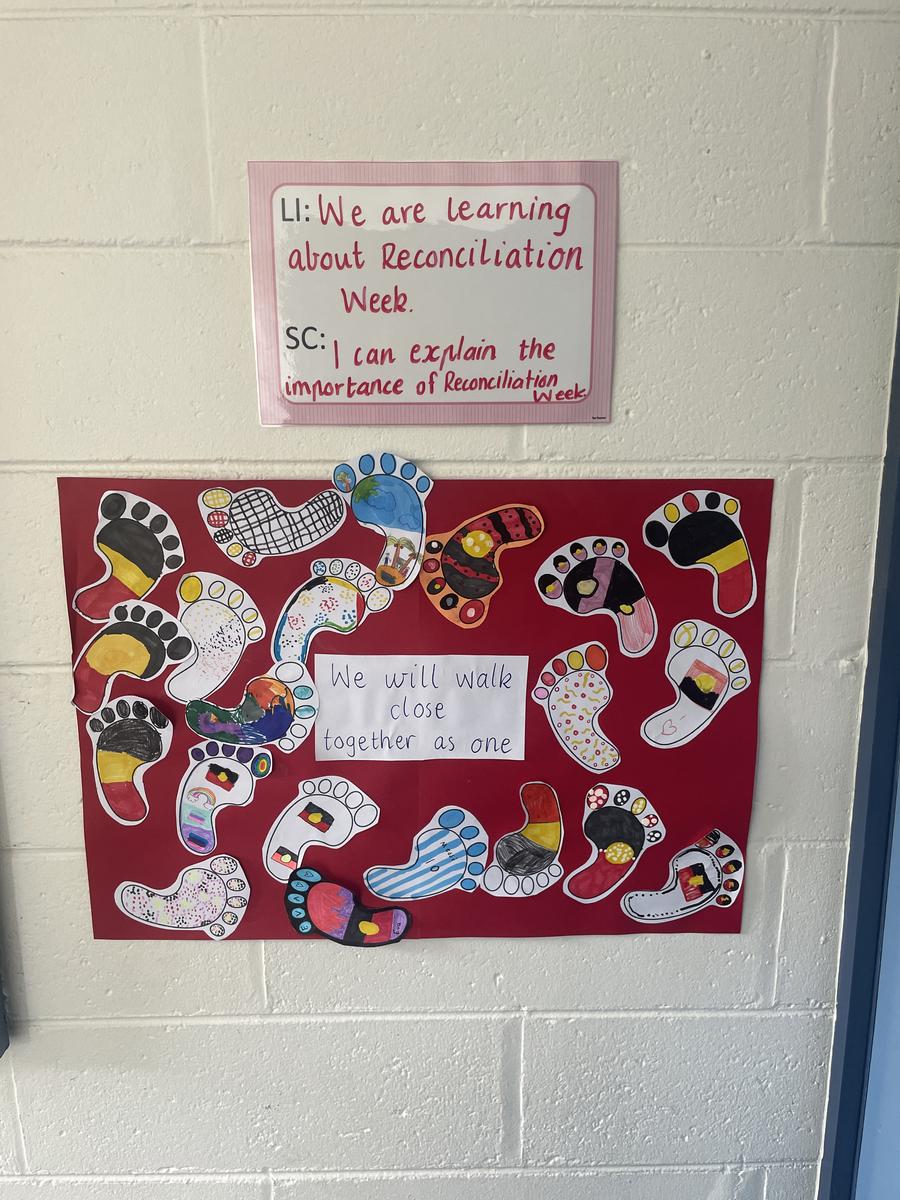
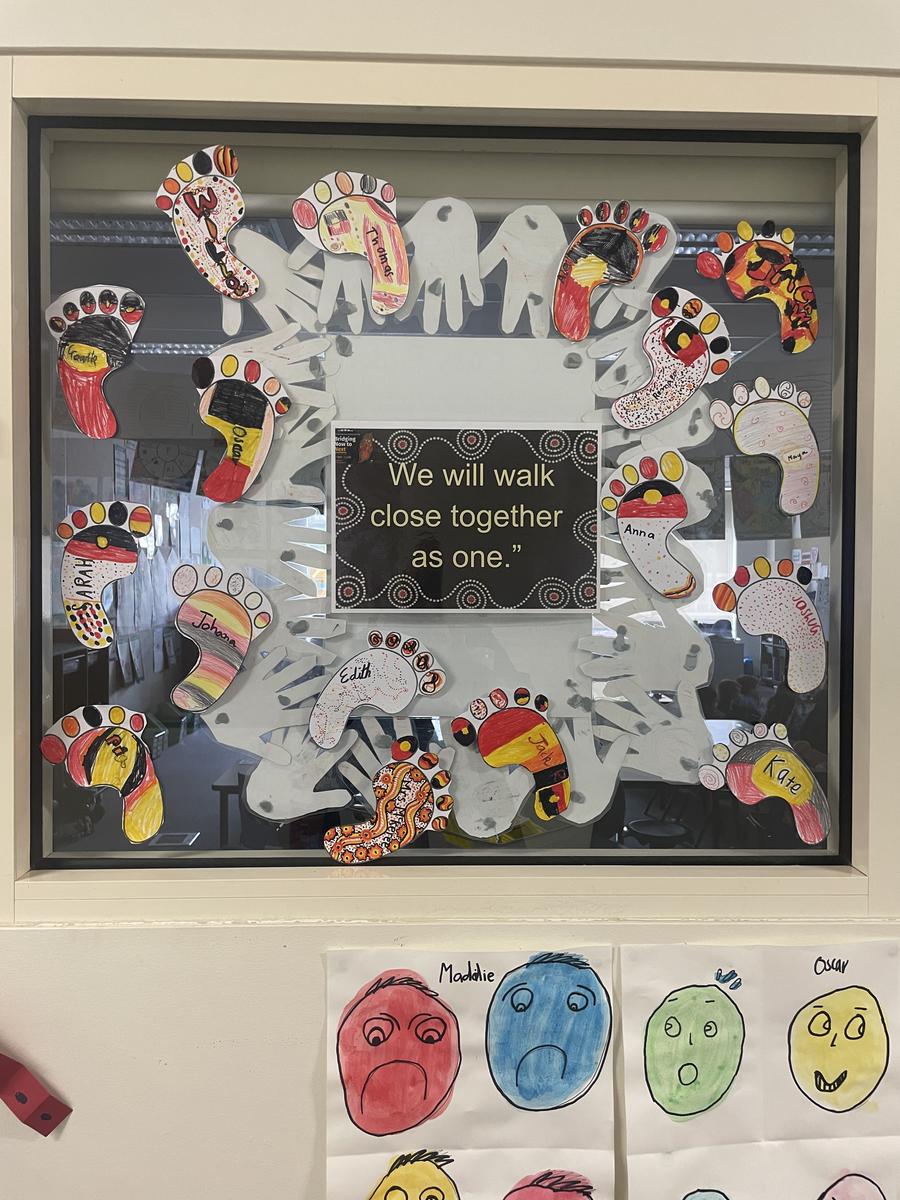
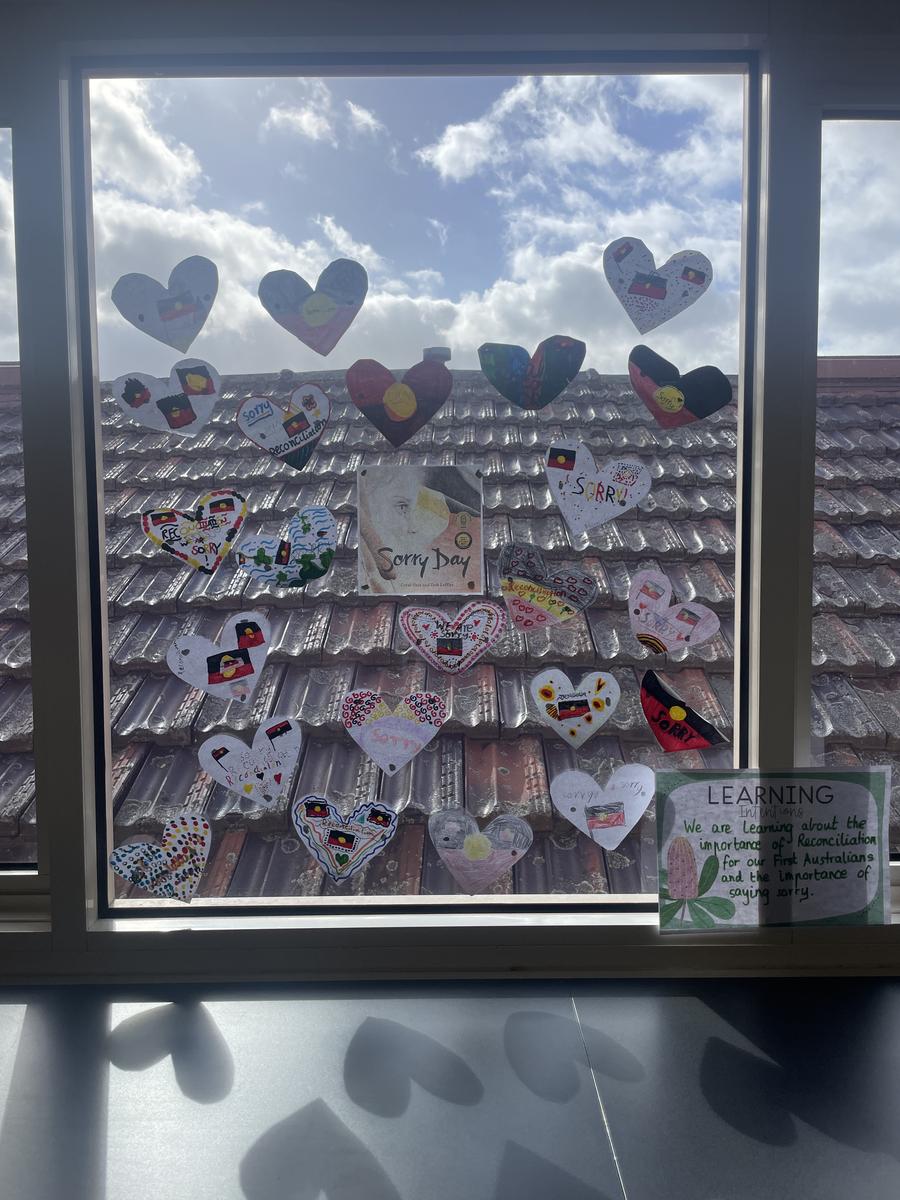
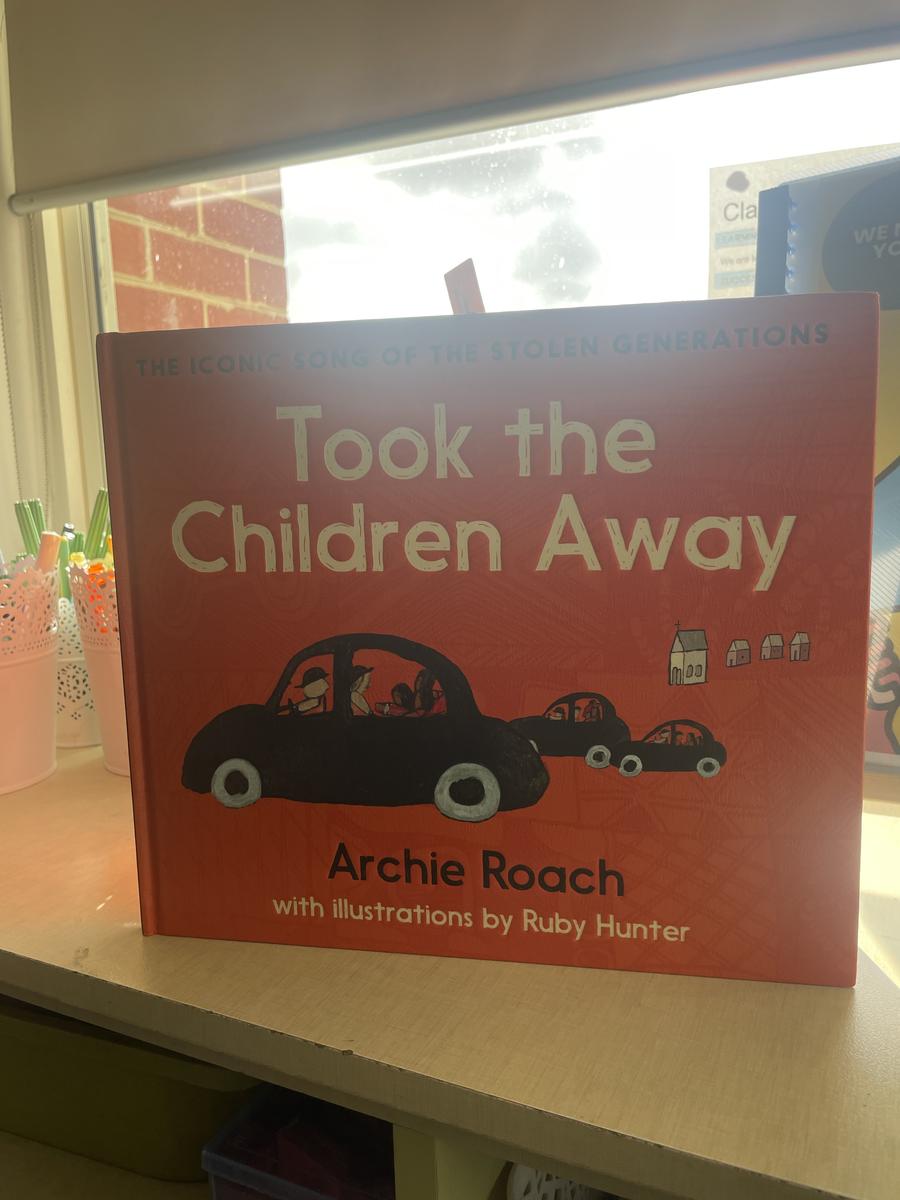







During Reconciliation Week, students engaged in a range of meaningful learning experiences to deepen their understanding of reconciliation and the importance of building respectful relationships between Indigenous and non-Indigenous Australians. Students read a variety of texts that highlighted Aboriginal and Torres Strait Islander histories, cultures, and perspectives.
Classes collaboratively created Acknowledgements of Country, reflecting on the significance of Country and the importance of honouring First Nations Peoples. Students also contributed to vibrant classroom and school displays to express their commitment to reconciliation, proudly showcasing their learning and respect for Aboriginal and Torres Strait Islander cultures.
These activities supported students in recognising their role in reconciliation and in helping to build a future grounded in respect, truth and unity.
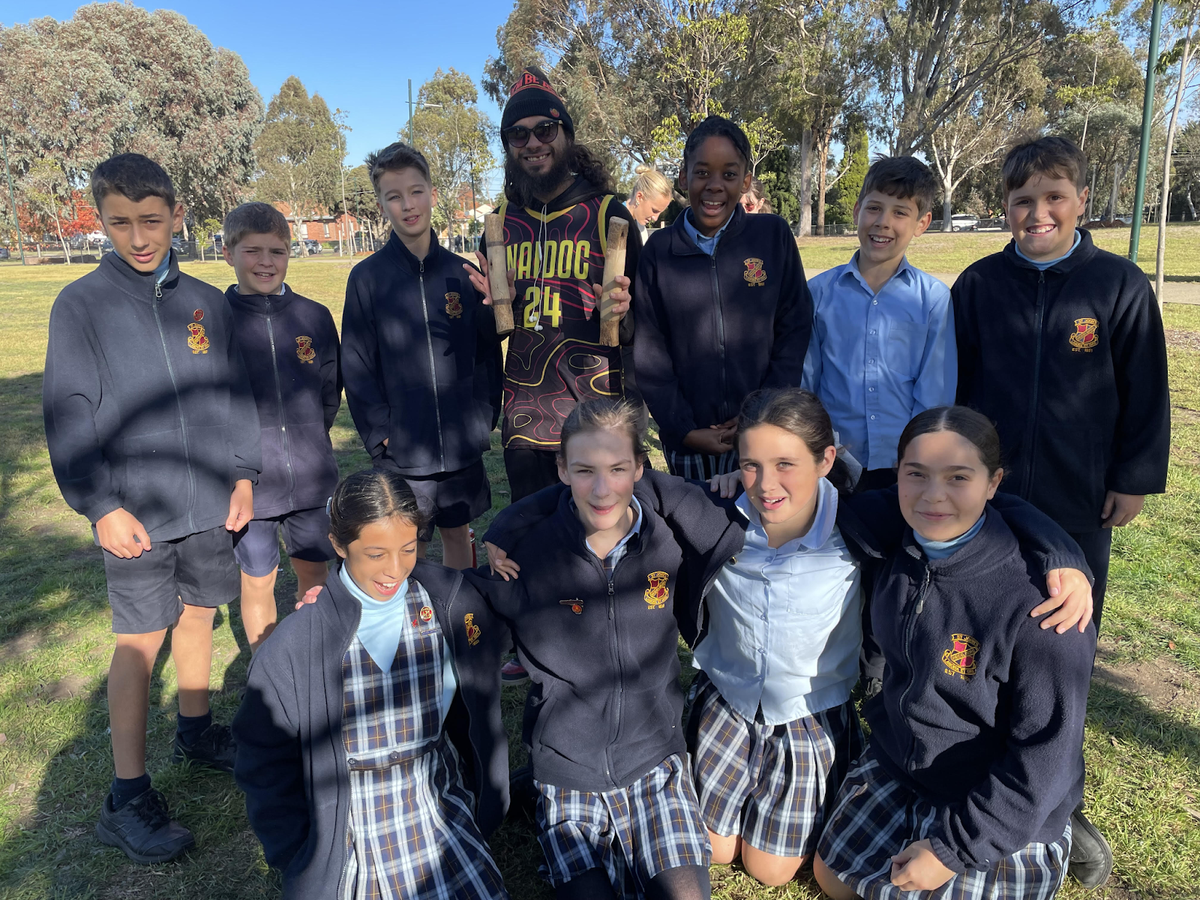

On Monday 26 May the students from the Fire Carrier, Cultural Diversity and Environment Student Action teams attended the National Sorry Day Healing Ceremony at Malahang Reserve, Cnr Oriel and Southern Roads, Heidelberg West.
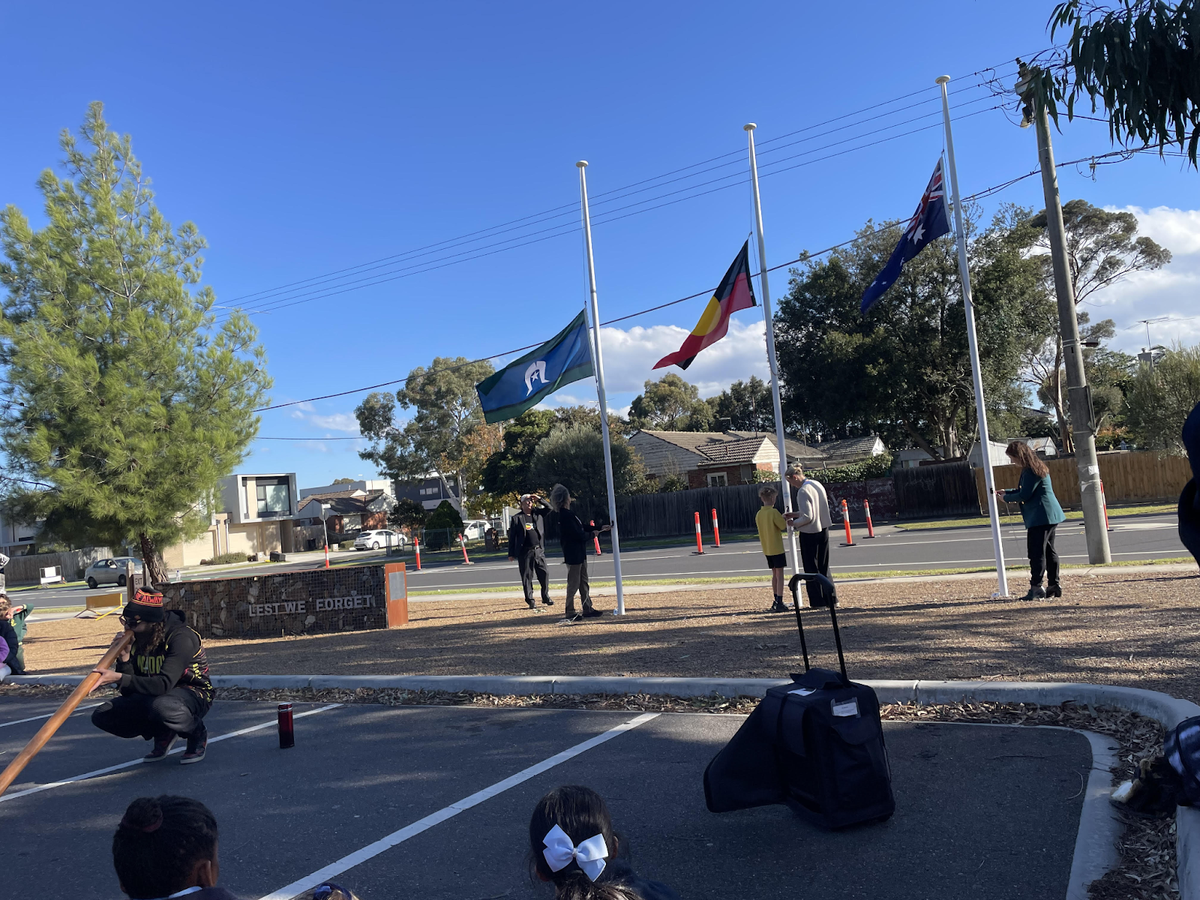

The National Sorry Day Healing Ceremony was about remembering the aboriginal people that have been impacted by decisions of non-aboriginal people. We watched the Australian, Torres Strait Islander and Aboriginal flags be drawn to half mast, in memory of those affected.
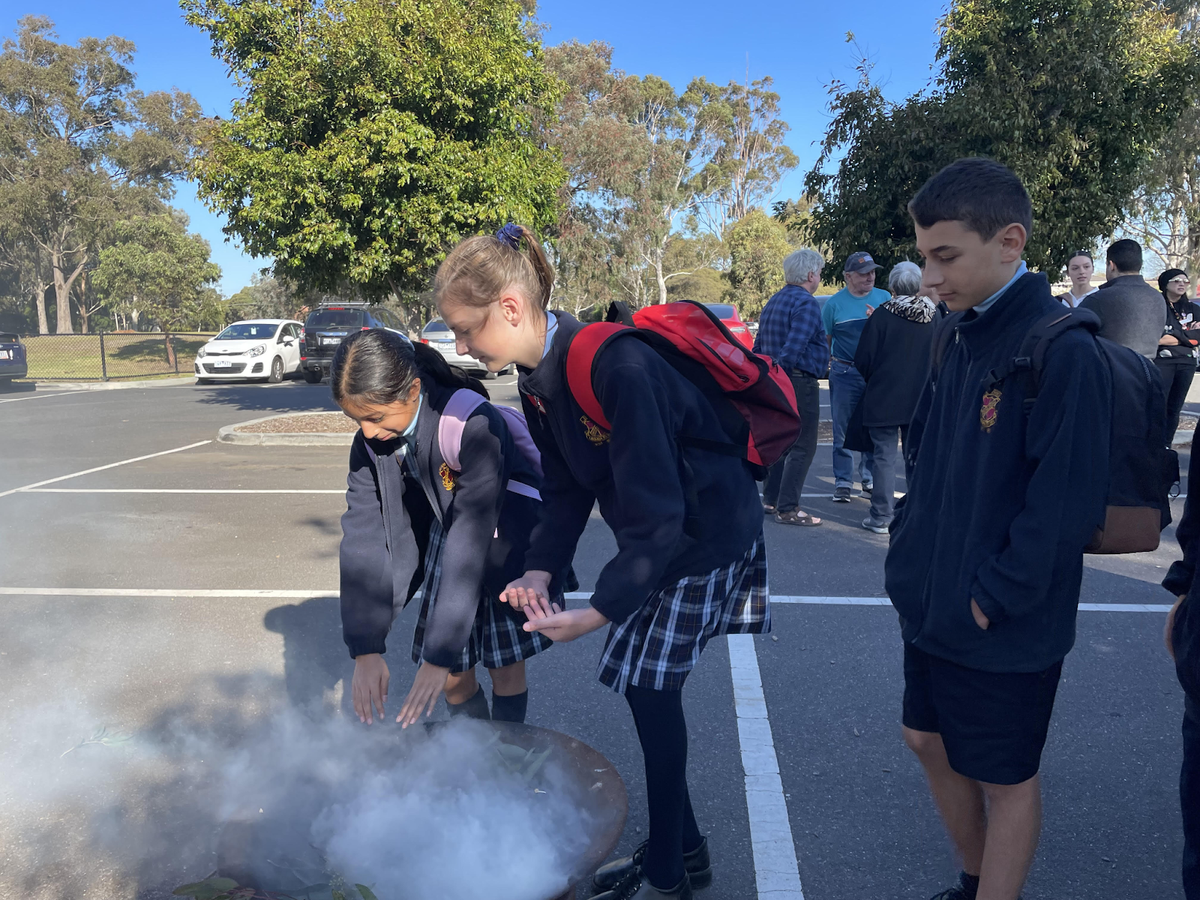

Students were invited to be part of the smoking ceremony. The smoking ceremony is a traditional ceremony used by Torres Strait Islander and Aboriginal people for cleansing. The students learnt the ceremony is about cleansing for the soul and the body.
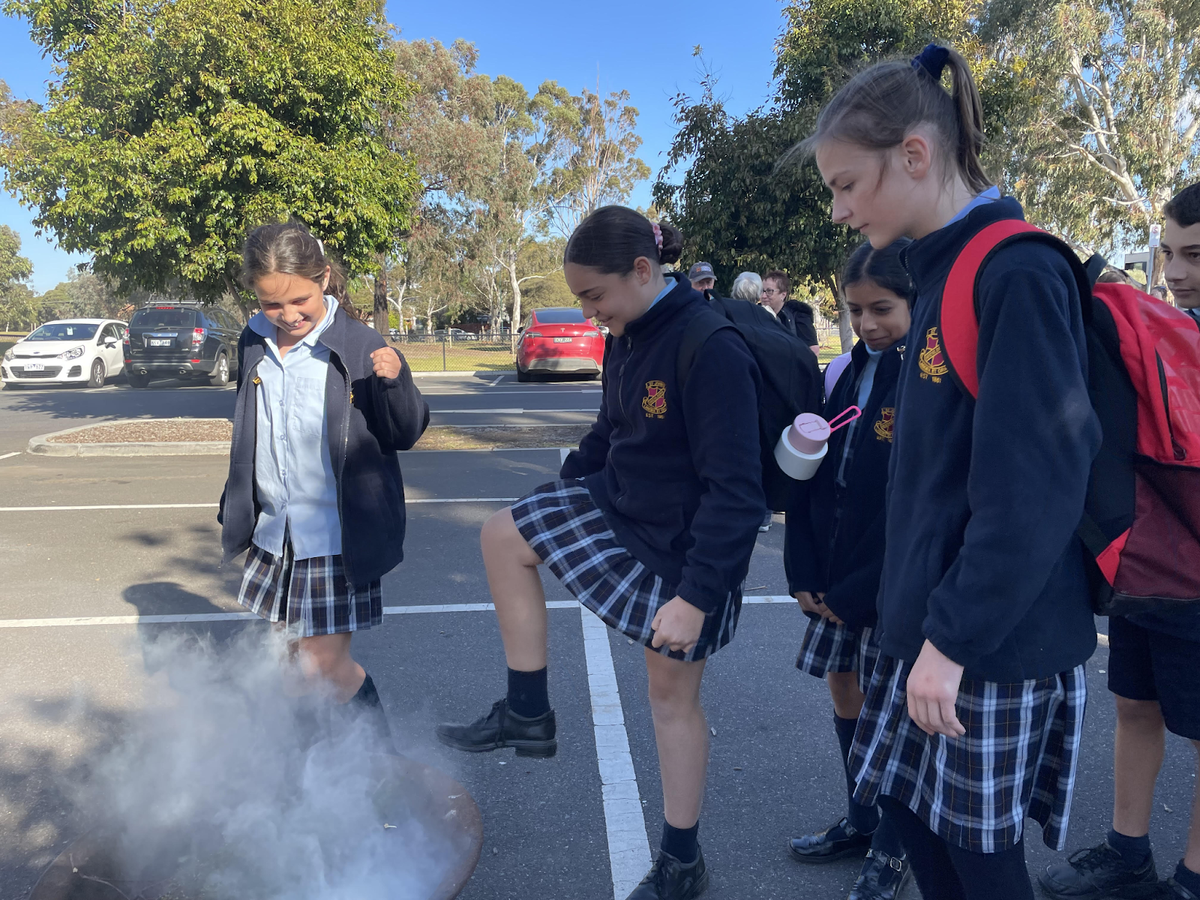

Our student leaders were invited to smell the smoke and raise their feet to ensure they were cleansed. The smoking ceremony was a special experience for both teachers and students.
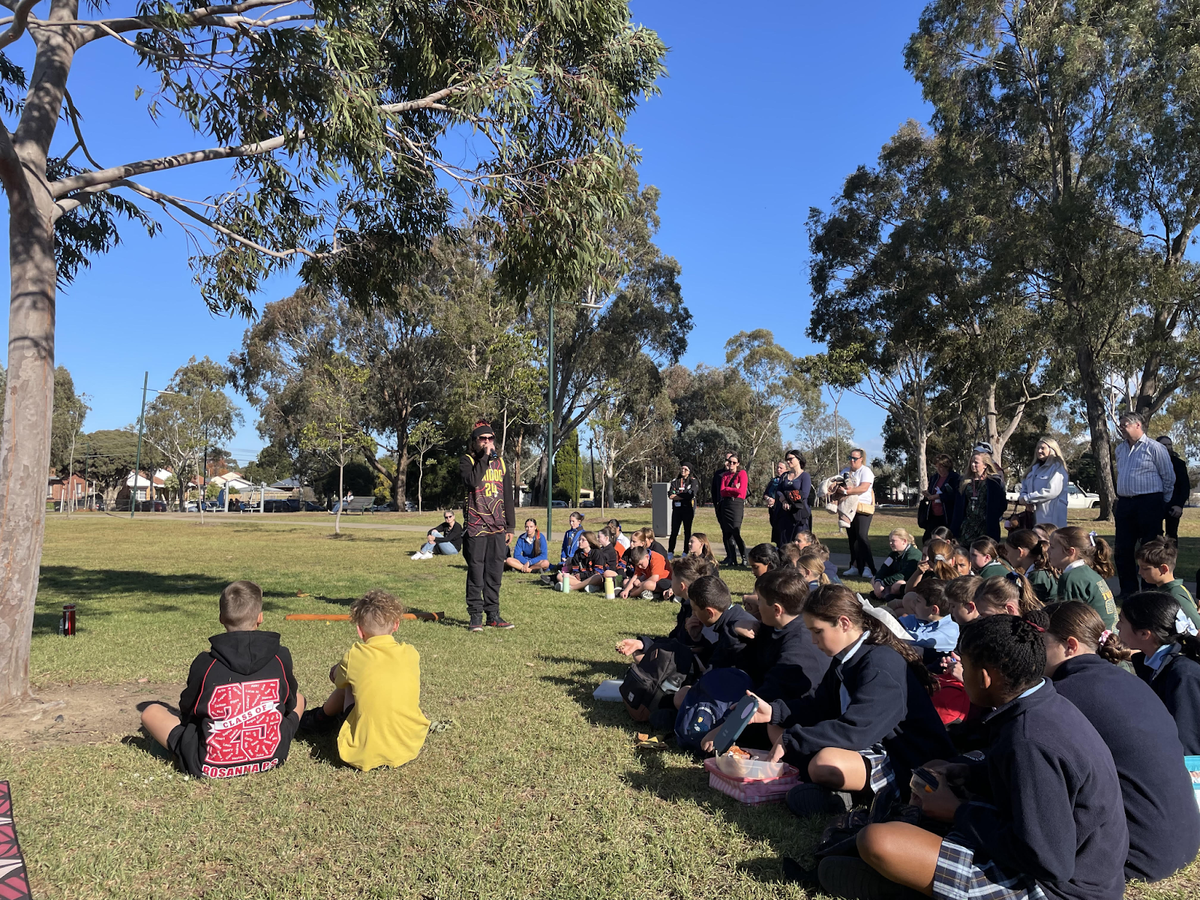

One exceptional part of that ceremony was the cultural dancing. The students learnt that the First Nations people express many things using dance and music. They can use dance to say how they are feeling. They use cultural dances at ceremonies and they use dance for fun and entertainment as well.
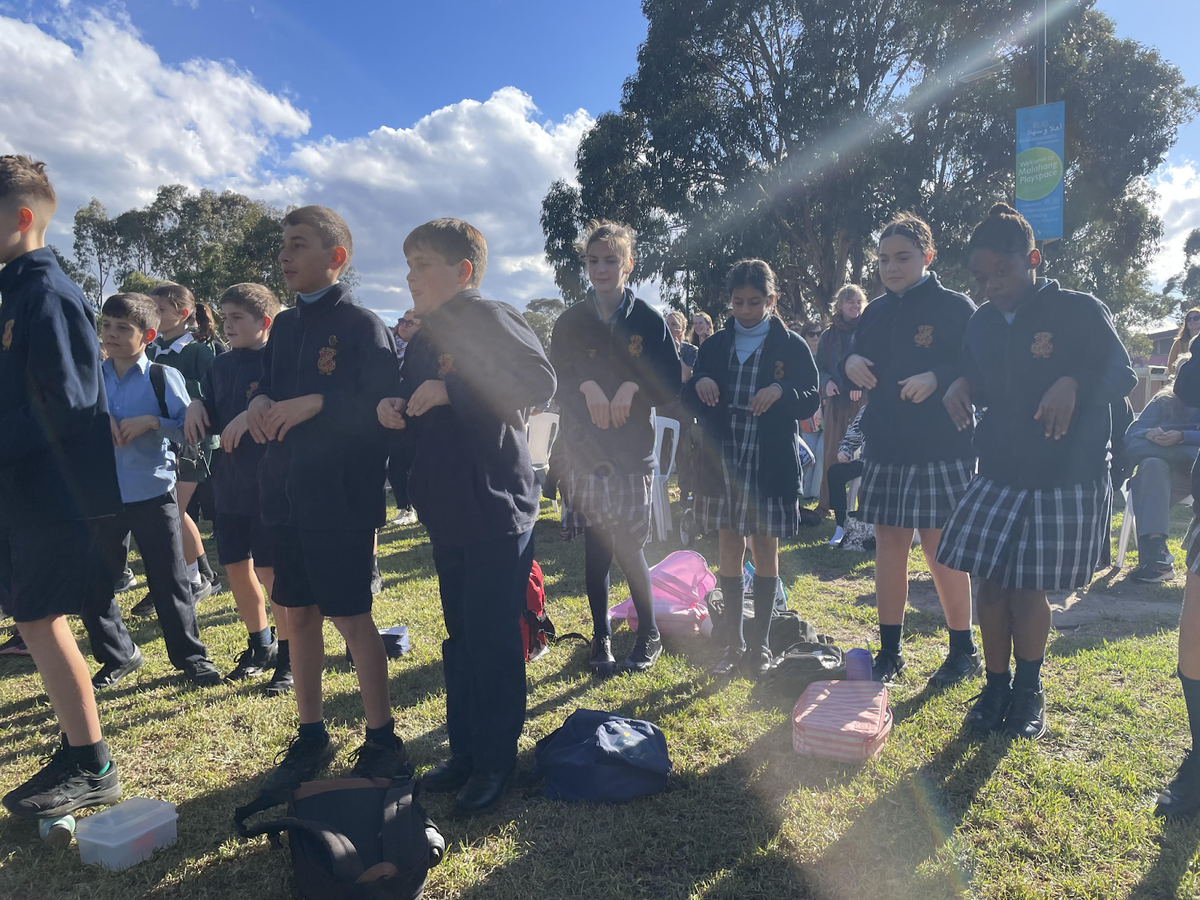

The students watched Brent play the didgeridoo and the clapping sticks while one of his friends performed the Creation dance and the Celebration dance. These dances were amazing as the dancers moved like animals. After the dances Brent taught all those that attended the Kangaroo and the Emu dances. It was a really fun experience to dance like these native animals because it is a style of dance that people don’t usually do so it was really nice to experience something new.
As part of our Positive Behaviour for Learning (PBL) focus, students have been learning about the importance of creating a respectful learning environment. Through a social story and targeted lessons, they explored what it means to let learners learn and teachers teach. The lessons were thoughtfully adjusted to suit the diverse needs of our students, ensuring all learners could engage meaningfully and reflect on how their behaviour impacts others. By recognising and respecting each other’s right to learn and grow, students are helping to build a positive and inclusive school community.
